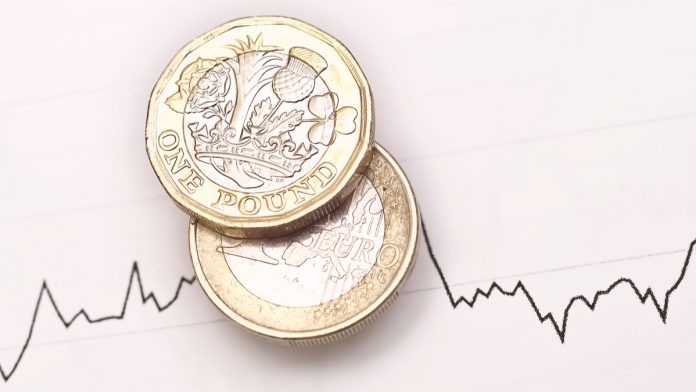- Pound (GBP) sees choppy trade across the week
- Fears the BoE will hike the UK into recession
- Euro (EUR) rose after hawkish ECB minutes
- German wholesale prices fall
The Pound Euro (GBP/EUR) exchange rate is falling, paring gains from the previous session. The pair rose +0.27% yesterday, settling on Thursday at €1.1697 and trading in a range between €1.1658 – €1.1719. At 05:35 UTC, GBP/EUR trades -0.09% at €1.1686.
The pound is weakening against the US dollar and the euro after a choppy session across the week. Data has shown that wage growth is at a record high and that the economy shrank by less than expected in May, fueling bets that the Bank of England will continue to hike interest rates aggressively.
However, fears are also rising that the BoE will tip the UK economy into recession in order to take the necessary heat out of the economy to rein in inflation which is proving to be very sticky.
There is no more high impact on UK economic data today. Attention will be turning to next week’s inflation report.
The euro is pushing higher against the pound on the US dollar at the end of a volatile week. The euro is finding support from the minutes of the June ECB meeting, which were released yesterday and show that the central bank was committed to raising interest rates in order to tame inflation. The minutes as good as confirmed that the central bank will deliver two successive interest rate increases in June and July. The market is still expecting the ECB to raise interest rates again by 25 basis points in September.
Data released today showed that German wholesale prices called by more than expected falling -2.9% annually, down from 2.6% in may and well below expectations of a fall of 1.2%.
Meanwhile, the eurozone reduced its trade deficit. Data showed that eurozone exports fell 2.3% annually in may and imports tumbled 12.8%. As a result the eurozone trade deficit shrank to €300 million.
There’s no more high impacting eurozone data due to be released today. As a result sentiment is likely to influence the common currency.





